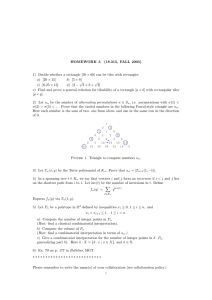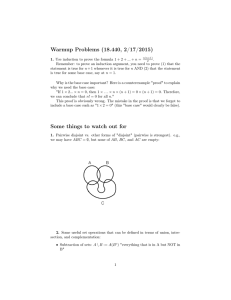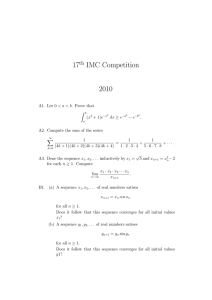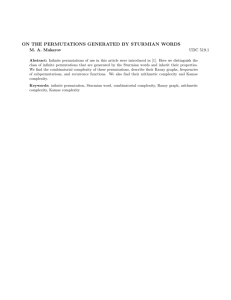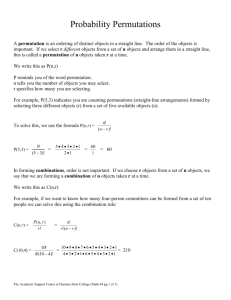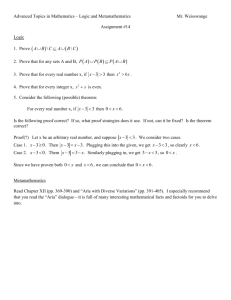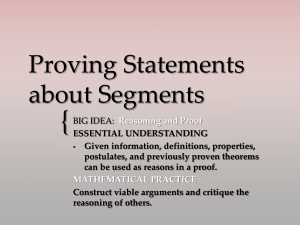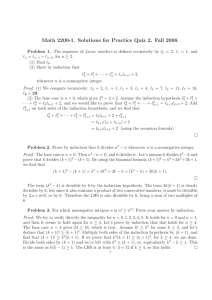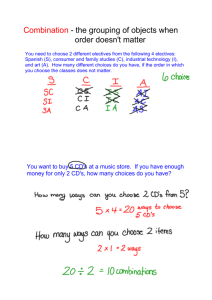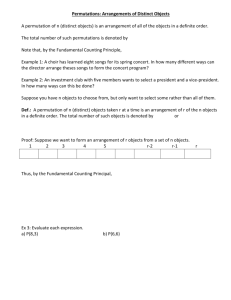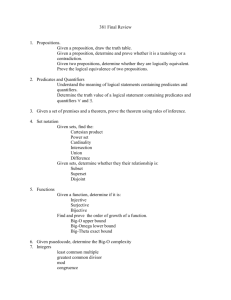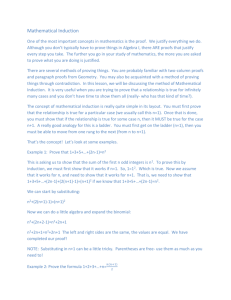Math 630 — Fall 2010 Homework 1
advertisement
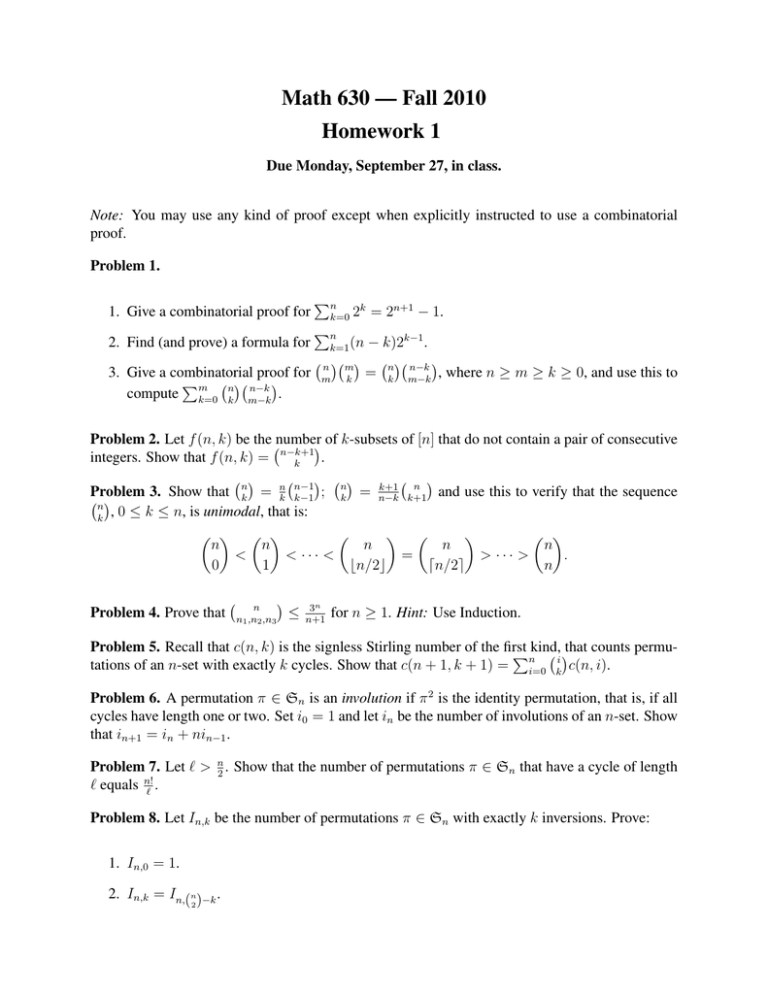
Math 630 — Fall 2010 Homework 1 Due Monday, September 27, in class. Note: You may use any kind of proof except when explicitly instructed to use a combinatorial proof. Problem 1. 1. Give a combinatorial proof for Pn k=0 2k = 2n+1 − 1. Pn − k)2k−1 . m n−k n n 3. Give a combinatorial proof for m = , where n ≥ m ≥ k ≥ 0, and use this to k k m−k Pm n n−k compute k=0 k m−k . 2. Find (and prove) a formula for k=1 (n Problem 2. Let f (n, k) be the number of k-subsets of [n] that do not contain a pair of consecutive integers. Show that f (n, k) = n−k+1 . k n n k+1 ; k = n−k and use this to verify that the sequence Problem 3. Show that nk = nk n−1 k−1 k+1 n , 0 ≤ k ≤ n, is unimodal, that is: k n n n n n < < ··· < = > ··· > . 0 1 bn/2c dn/2e n Problem 4. Prove that n n1 ,n2 ,n3 ≤ 3n n+1 for n ≥ 1. Hint: Use Induction. Problem 5. Recall that c(n, k) is the signless Stirling number of the first Pnkind,i that counts permutations of an n-set with exactly k cycles. Show that c(n + 1, k + 1) = i=0 k c(n, i). Problem 6. A permutation π ∈ Sn is an involution if π 2 is the identity permutation, that is, if all cycles have length one or two. Set i0 = 1 and let in be the number of involutions of an n-set. Show that in+1 = in + nin−1 . Problem 7. Let ` > n2 . Show that the number of permutations π ∈ Sn that have a cycle of length ` equals n!` . Problem 8. Let In,k be the number of permutations π ∈ Sn with exactly k inversions. Prove: 1. In,0 = 1. 2. In,k = In,(n)−k . 2 3. In,k = In−1,k + In,k−1 for k < n. Is this also true for k = n? 4. P(n2 ) k k=0 (−1) In,k = 0 for n ≥ 2. The In,k are called inversion numbers Problem 9. Recall that A(n, k) is the Eulerian number that counts the permutations of an n-set that have k − 1 descents. 1. Prove that A(n, k) = (n − k + 1)A(n − 1, k − 1) + kA(n − 1, k) for n, k ≥ 1, with initial conditions A(0, 0) = 1 and A(0, k) = 0 for k > 0. P 2. Use Induction to prove that xn = nk=0 A(n, k) x+n−k . n Problem 10. Use the previous exercise to show that A(n, k) = Pk i n+1 i=0 (−1) i (k − i)n .
